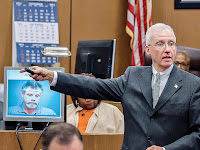Since 2009, our lawyers have been generating law-related
blog content. This is our newest creation; the very first post of the Motor City
Law Blog.
Our law firm has developed many blogs; some are theme
specific covering topics like divorce and criminal defense; others cover
broader topics of legal interest.
In this blog, all posts will have a visceral connection to
Detroit. Detroit has been bashed, smashed and abused. Now there is nowhere
for Detroit to go but up. One thing about this city is that it always holds its
head-up high.
The last few years have brought Detroit to its knees
financially and politically; this year, we emerged from bankruptcy; just a few
years ago, we saw a former mayor sentenced to 18-years prison in federal court.
A new mayor, Mike Duggan, was the first white politician to be elected mayor in
Detroit since the mid-1960s; he was a write-in candidate.
With this first post, we wanted to take stock in Detroit by
focusing on a few statistics unearthed during the focus on the bankruptcy of
our fair city. We will then seek out stories of interest, always with some
legal angle and hopefully of interest to our readers.
We promise to be short; we promise to be sweet. We will
scour our news feeds for Detroit-related meat; we will post the information and
serve-up our connection. Hopefully, this will be of interest to our readers. In
doing so, it is our avowed mission to add value, however minuscule, to our fair
city.
We cannot promise that all the posts will be positive as
this is not a dreamer’s blog; this is a blog about an ancient gritty city
situated along the banks of the Detroit River and placed at the heart of the
Great Lakes state. This is a blog about a once and future world-class city with
the blue-collar blood of the original equipment manufacturers running through
its veins.
So here is one set of measurements of Detroit in mid-2015, as we take its volatile
temperature in this first post:
- When Detroit filed bankruptcy two years ago, it was $18 billion in debt, against only $1.5 billion in average annual revenue;
- Of the $11.4 billion in unsecured debts, nearly 80% was for employee pensions and health insurance coverage;
- The average retiree had an annual pension income of $19,000;
- The average pensioner received a 4.5% reduction in their benefit, but a 90% cut in health care coverage;
- Despite these reductions, 70% of the pensioners voted in support of the final bankruptcy plan;
- Police response time, nearly an hour pre-bankruptcy, has been cut to 18-minutes -the national average is 11-minutes;
- 2/3s of Detroit's ambulances were disabled on any given day; this has been cut to half of the fleet;
- Despite a largely disabled fleet, since emerging from bankruptcy, the average response time for an ambulance is now about 12-minutes;
- 40% of the city's streetlights do not function, with vandalism and age equally responsible;
- 78,000 abandoned structures lie within the city limits, with an average cost of $10,000 to demolish a single-family residence;
- homicides have fallen-off by 18%, with 72% of the cases getting closed.
No doubt, a tough road lies ahead. Stay tuned and lend a hand...



























